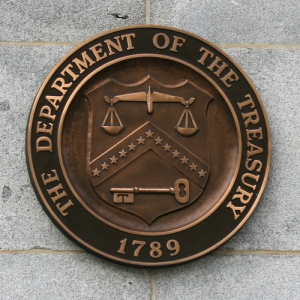Let’s Not Call it a Federal Bailout, It’s an Investment
Seriously, if we looked at the ‘bailout’ as if the federal government was our broker, and we had invested in these ‘too big to fail’ businesses rather than just bailing them out with our tax money it would be much more constructive.
Not to mention we’ve actually made some money off the ‘investment’ already.
The New Power of the People
We the people finally have the power to hold CEOs feet to the flames after many years of letting them run loose without enough regulation. We have the attention of politicians who are sweating their upcoming elections and will listen to what we have to say.
So, why cry over spilled milk? Why keep complaining about the ‘investment’ happening in the first place? We’ve all had ample time to voice our opinions about the bailout enacted at the end of Bush’s presidency. It’s now time that they we face down our problematic circumstances and ask ‘How can we make the best of this?’.
I’m talking about good ‘ole American gumption.
If We’re Investing, We Can’t Throw Our Money Away
We’ve entered a new era where the taxpayers could realize real profits if we could just realize the potential. Face it, we have invested in these companies like it or not. We might as well make sure that they get it right this time by holding them accountable with more oversight and helping them shape successful businesses that put their customers first.
If we’re smart shareholders we’ll not only have better businesses and a stronger economy, we’ll also make back our money and then some.
And we’re already seeing some gains.
So far we’ve gotten back $216.8 billion of the $536.3 billion spent on the TARP. Of that money we’ve received $29.9 billion has been revenue – money we’ve made off of our ‘investment’.
Too Big to Fail is Too Risky of an Investment for Our Economy
At the root of the whole problem, the reasoning for the bailouts in the first place, is that these businesses were ‘too big to fail’. And just why is that? Why is it imperative that these big businesses stay afloat?
Because changes were made to regulations over the financial sector which allowed for 6 banks to go from having assets that equal 17% of the GDP in 1995 to assets that equal 63% of the GDP today.
That’s right, 6 banks (Bank of America, JPMorgan Chase, WellsFargo, Goldman Sachs, Citigroup, and Morgan Stanley) basically control the majority of our country’s economy. This gives them far too much influence over the financial well-being of us all. CEOs can potentially make decisions that affect your money more than the decisions you make. And we’ve all seen that they can make very bad decisions.
Our country’s GDP now depends on these too big businesses. Is there anybody who still thinks we don’t need more federal regulation over them?
So let’s get active as investors. Let’s make sure we’re informed on the risks and rewards of our ‘investments’ and correct the problems so that we the people have more control our country’s financially stabilility than 6 banks.

Leave a comment